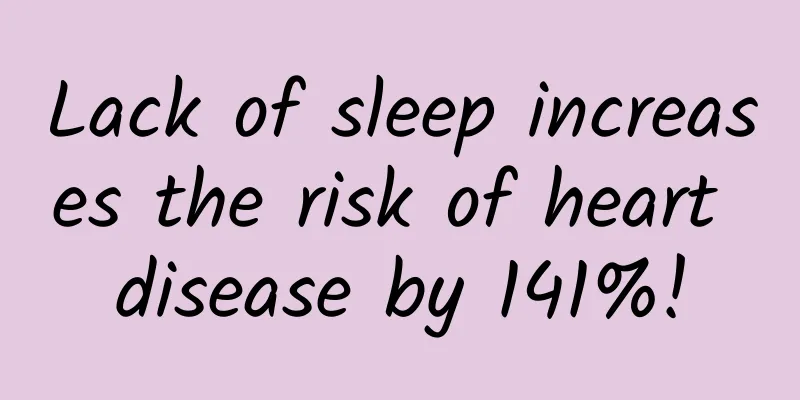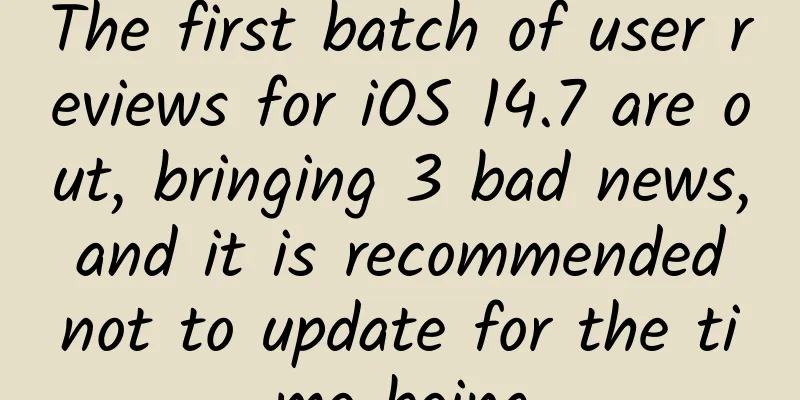Lack of sleep increases the risk of heart disease by 141%!

|
A study recently published in Scientific Reports found that poor sleep quality may damage heart health and increase the risk of heart disease by 141%. The study reviewed sleep data from 6,820 U.S. adults, with an average age of 53, who self-reported their personal sleep characteristics and heart disease history. Of the participants, 633 wore a research device (an actigraph) on their wrist to capture their sleep activity. The researchers looked at multiple aspects of sleep health, such as regularity, satisfaction, alertness while awake, sleep duration, sleep efficiency and sleep duration, and linked them to doctor-diagnosed heart disease. The researchers found that for each additional self-reported sleep health problem, the risk of heart disease increased by 54 percent. Among those who provided sleep data both through self-reporting and research devices, the increased risk of heart disease due to poor sleep health was much higher — a 141 percent increase, a figure considered more accurate. "These findings suggest that understanding a person's 'sleep health problems' is important for assessing heart disease risk. This study is the first to demonstrate that more sleep health problems may increase heart disease risk in middle-aged adults," said Soomi Lee, assistant professor in the USF School of Aging Studies and the study's lead author. "Those who provided both self-reported and monitored sleep data had a higher risk, suggesting that accurate and comprehensive measurement of sleep health is important for preventing heart disease." The research team asked participants about their health, including whether their doctor had confirmed they had heart disease such as arrhythmias, heart murmurs or an enlarged heart. High blood pressure was flagged as a risk factor for heart disease. They also looked at participants' family history of heart disease and sociodemographic factors such as race, sex, smoking history, depression and physical activity. The researchers found that while women reported more sleep health problems, men were more likely to have heart disease, but gender did not affect the overall correlation between the two factors. They also found that black participants had more sleep health problems and higher rates of heart disease than white participants, but the strong link between sleep health and heart disease did not change overall by race. Lee said that while sleep health is important for people of all ages, the team focused on midlife because it is a longer period and has more diverse life experiences and greater stress due to work and family roles. This stage is also when heart disease and age-related sleep problems begin to emerge. Because sleep health can be improved, the findings could help develop preventive strategies to reduce the risk of heart disease, the researchers said. Source: China Science Daily Author: Li Muzi Related paper information: https://www.nature.com/articles/s41598-022-05203-0 The pictures in this article with the "Science Popularization China" watermark are all from the copyright gallery. The pictures are not authorized for reprinting. |
<<: 22 satellites in one rocket! Long March 8 opens a new model of shared rocket "carpooling"
>>: Cooking food without heating it? It's possible...
Recommend
Introduction to the process of placing native dynamic product ads on Baidu!
What are native dynamic product ads? Native Dynam...
Apple vulnerability does not affect Alibaba APP
SourceDNA, an American application analysis servi...
Now that it has entered the ranks of official vehicle purchases, can we look at Zotye in a different light?
Nowadays, in the entertainment industry, in addit...
Data analysis: How to analyze the effectiveness of activities?
Scenario restoration: A music APP offers a 7-day ...
4 ways to design the background image of the new media Douyin homepage
After completing the account positioning planning...
What is the difference between a marketing director with a monthly salary of 100,000 and one with a monthly salary of 30,000?
In the 21st century, the era of mobile Internet h...
Lin Yu's "Little Book Boy's Thinking Class" quickly captures the blue ocean of knowledge payment topics
Course Contents: 1. Section 1: Course Creation Man...
What are the equipment that can be connected to the real-name system on construction sites?
At present, the country is vigorously promoting t...
After refuting the relationship rumors, Zhang Ming En appeared in Hu Bingqing's residential area and left immediately when he saw the candid photos!
On June 23, Zhang Ming'en was photographed ag...
Which should you choose, TLC or MLC? How to buy a solid-state drive
Before deciding to upgrade your SSD, you should fi...
How many of those fever rumors have you fallen for?
This is the 3587th article of Da Yi Xiao Hu In wi...
Counterintuitive but real! Three amazing quantum effects, how many have you heard of?
In physics, there are many extremely important ef...
This high-speed railway is about to open! The driver's perspective is exposed in advance
Ganzhou-Shenzhen High-Speed Railway (Ganzhou-Sh...









